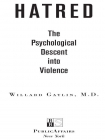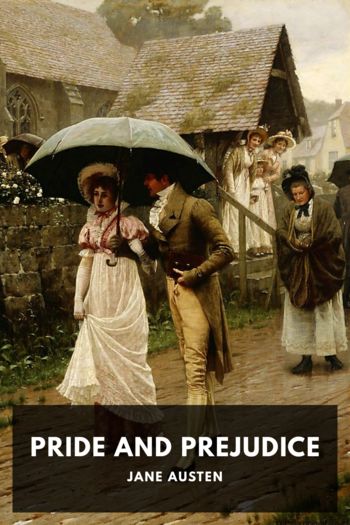Hatred by Willard Gaylin (best manga ereader txt) 📗

- Author: Willard Gaylin
Book online «Hatred by Willard Gaylin (best manga ereader txt) 📗». Author Willard Gaylin
Obviously, I am not using envy here in the vernacular sense, as a synonym for admire, as in “I envy you your patience (or drawing skills, musical abilities, way with women).” Such colloquial usages for feelings trivialize and minimize the malignancy of both the feelings and the individuals obsessed by them.
Envy is a complex amalgam of at least four conditions—all necessary for its full and true development. The first is that feeling of deprivation previously described. The mere absence of money, position, or pleasure will not alone generate a feeling of deprivation. We must go beyond the absence of goods. We must feel that this deprivation, far from being the common fate or even bad luck, was, to the contrary, imposed on us in particular. We must feel that someone has set out to deny us the good things of life. The feeling of deprivation requires imagining a malignant force in operation. Someone has done this to us.
Second, we must feel that what we have been denied is possessed by others. Crucial to envy is a comparative point of view. A sense of injustice and unfairness must prevail.
Third, we must have a sense of impotence in the face of the disparity. This impotence may exist because we are aware of our powerlessness to change our way of life or because there is no redress. Frustrated rage and helplessness are two essential ingredients in building envy. Over one hundred years ago, that great student of social unrest, Max Scheler,22 emphasized the crucial role played by impotence. Scheler said that the mere fact that another possesses that which one covets does not constitute envy. It may, he suggests, motivate one to acquire the desired object or something similar by legal or illegal means, working for it, buying it, or stealing it. “Only when the attempt to obtain it by these means has failed, giving rise to the consciousness of impotence, does ‘envy’ arise.”
The element that completes the mosaic of envy involves inserting a causal connection between our deprived state and the position of privilege of others. It is not just that we do not have that which they have, it is that we do not have it because they have it.
What possible adaptive value can such a demeaning emotion have? One might see it as a vestigial element from a prehistoric past. I have already indicated that I feel we are stuck operating with a physiology of anger that has been made obsolete by modern life. We resort to medical means to compensate for the adrenaline rush that has no place in a society where fight-or-flight solves few problems. Hence the large number of men and women taking beta-blockers and other drugs to stabilize their blood pressure and heart rates.
But of what value could envy have had in the prehistoric past? None that I can imagine, for it never brings gratification. We overvalue that which we do not have, and minimize that which we have been given. It is a game with no winning. The envious person would find misery in Eden.
Envy may simply be a degradation of the emotion of jealousy. Jealousy is admittedly a painful feeling, but its purposes can be traced to adaptational advantages. Jealousy is complicated by the fact that it has two separate meanings. In the sense that does not concern us here, jealousy refers to the suspicious, paranoid feeling associated with sexual and romantic attachments, where we are frightened that what we have might be stolen away. The jealousy that is relevant to this discussion is that form—often confused with envy—that focuses on what others have that we do not. Jealousy in early childhood is invariably involved with the rivalry for parental attention and affection. Jealousy emerges with the fear that the rival sibling is getting more than we are. In adult life, jealousy tends to be much less functional.
In precultural societies, jealousy may have served a similar role that it plays in childhood. It stirs competition. This promotes individual survival, while at the same time serving group survival in that it helps ensure that the fittest ascend to power. The fact that in our highly competitive and paranoid society, we need no spur to encourage competitive impulses does not belie the original useful purpose of the emotion.
In the case of envy, actual competition is not an essential. The envious person sees everything in a comparative and competitive framework, carrying envy into every aspect of life. Envy represents a vicious and hateful resentment of people that is independent of their actual encroachment on our pleasures. The envious resent everything about the other—their comfort, their possessions, and beyond that, their very existence.
Schadenfreude is the reverse of envy. Whereas envy generates pain in the pleasure of others—think of Satan’s agony on viewing Adam and Eve in Paradise—schadenfreude is the joy felt on hearing of others’ misery. All of us are likely to experience a certain pleasure when the high and the mighty take a fall. That simply reduces the gap between their power and ours. Schadenfreude, however, is a more severe problem. Envy and schadenfreude are obverses of the same coin, and always appear together. When severe, every success of even our closest friend will be viewed as a threat and a humiliation on our part. It is as though life is viewed as a seesaw where the rise of another human being demands our decline.
A young actress who had entered treatment with a mild depression was the first to present the





Comments (0)